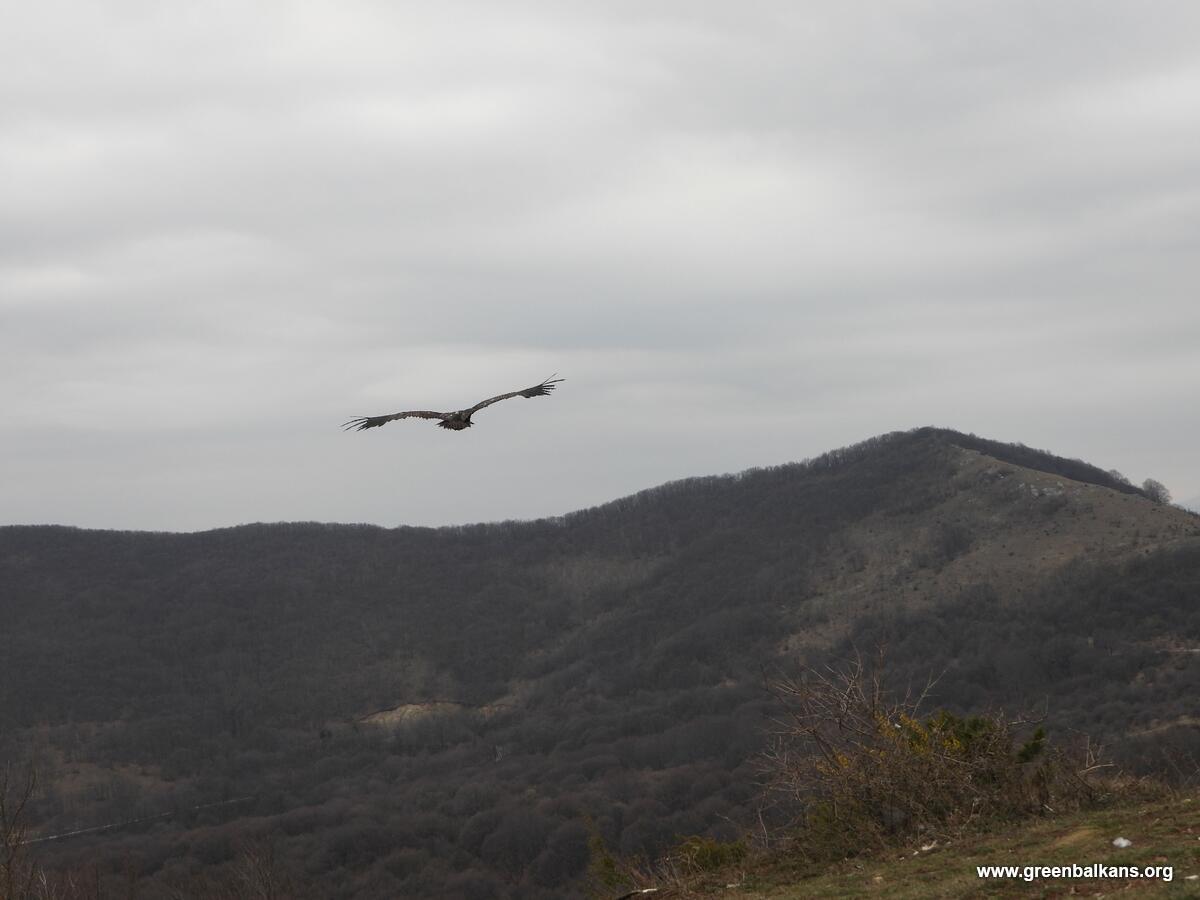
In the animal kingdom, parenting roles can vary greatly among species. What may sound surprising, due to their negative but undeserved image, vultures prove to be brilliant in the parenting department, as they rank among the most diligent parents in the animal world. What’s remarkable is that this commitment extends to both genders, with males and females actively involved in crucial activities such as nest building, egg incubation, and feeding the young.
Two Cinereous Vulture pairs, different behaviours in the nest
In Bulgaria’s Balkan mountains, where the Cinereous Vulture returned as a breeding species through the Vultures Back to LIFE project, the GPS transmitters of birds give us a glimpse of their dedication to parenting. Bagatur and Karakachanka, as well as Balkan and Dobrudja, have made Kotelsko their home and are closely tending to their nests. While both pairs exhibit typical behaviours for the species, their behaviour differs slightly.
Bagatur and Karakachanka show an extraordinary level of devotion, rarely leaving their eggs unattended, sometimes going as long as three days without a break, as depicted in the data. This behaviour, though not very typical for the species, it is normal in a new family.


On the other hand, Balkan and Dobrudja display a more agile and impatient demeanour. They frequently change positions on the nest throughout the day, as evidenced by the data graph.
The Bearded Vulture LIFE project team gathers valuable insights from satellite transmitters attached to the vultures’ backs. By monitoring the birds’ movements and behaviour, the team can assess and implement effective conservation strategies. By interpreting data such as the transmitters’ positions and their locations, the project team gains real-time insights into the vultures’ behaviour in the wild. This non-intrusive monitoring method minimizes disturbance to the birds, especially during their vulnerable nesting periods, while still providing essential information for their conservation.
A record of Cinereous Vulture pairs in Bulgaria
The Cinereous Vulture, once declared extinct in Bulgaria as early as 1985 and maintaining that status in subsequent editions of the Red Book of Bulgaria, experienced a remarkable turnaround by 2024. Prior to 2021, not a single breeding pair had been sighted. However, thanks to years of conservation efforts, particularly through the Vultures Back to LIFE project, the national population has grown to an impressive 18-20 pairs.
Of these pairs, 15-17 are nestled in the two colonies of Vrachanski Balkan/Ponor and Eastern Balkan Mountains (Sliven/Kotel), where reintroduction efforts have been focused. Astoundingly, at least 10 of these pairs are incubating eggs this season, marking a significant milestone in the species’ recovery.
Furthermore, reports indicate the formation of two to three new pairs in the Eastern Rhodopes, where a local reintroduction initiative is underway, led by BSPB/BirdLife Bulgaria, Rewilding Europe, and GREFA. Although breeding has yet to start in this area since the birds are still young, these developments are promising for the species.
With these encouraging numbers, the Bulgarian reintroduced population now constitutes a third of the Balkan Peninsula’s Cinereous Vulture population, complementing the existing autochthonous colony in Dadia, Greece, which hosts 30-35 pairs. This comeback underscores the success of collaborative conservation efforts and offers hope for the continued recovery of this majestic species in the region.
As the Vultures Back to LIFE project came to an end in 2022, the mission to secure Bulgaria’s Cinereous Vulture population continues through our new project: the Bearded Vulture LIFE. This ambitious initiative aims to reintroduce the Bearded Vulture, a symbol of nature conservation in Bulgaria. Achieving this goal relies heavily on extensive collaboration, bringing together the efforts of eight partners across three European countries.
The Bearded Vulture LIFE Project

The “Bearded Vulture LIFE” project is a comprehensive initiative, aiming to restore the Bearded Vulture and Cinereous Vulture across Bulgaria and the Balkans. With a budget of €5.17 million, co-funded by the European Union’s LIFE Programme, the project commenced in August 2023 and is expected to continue until 2030. Building upon the achievements of its predecessor, “Vultures Back to Life,” it is coordinated by Green Balkans, with five more partner organizations within Bulgaria, including the Fund for Wild Flora and Fauna, Foundation EkoObshtnost, EVN – Elektropradelenie Yug EAD, Severozapadno Darzhavno Predpriyatie – Vratsa, and “Sinite kamani” Nature Park Directorate. Furthermore, the project benefits from international collaboration, including the Vulture Conservation Foundation (VCF), responsible for the translocation and safeguarding of captive-bred birds secured for release. Additionally, the partner Milvus group is responsible for executing conservation efforts in Romania.

Source: Green Balkans



